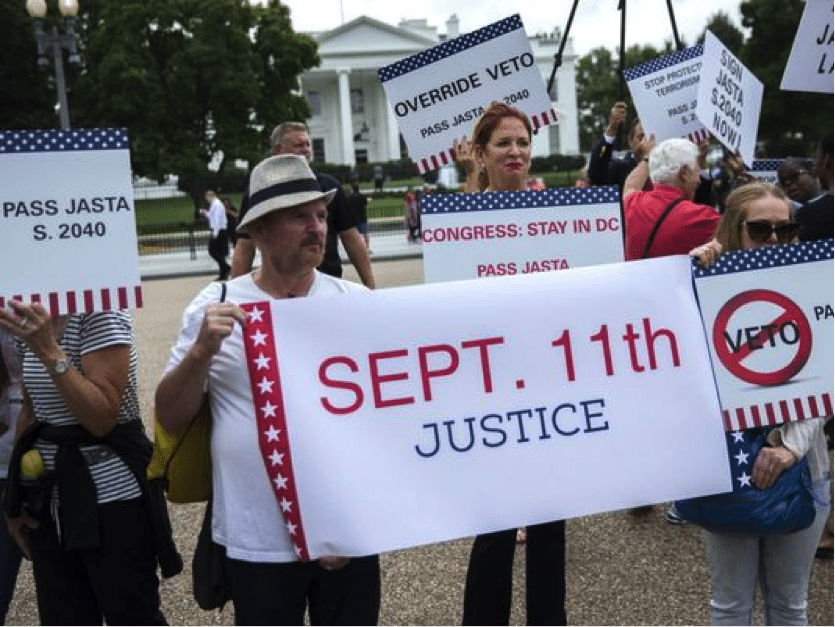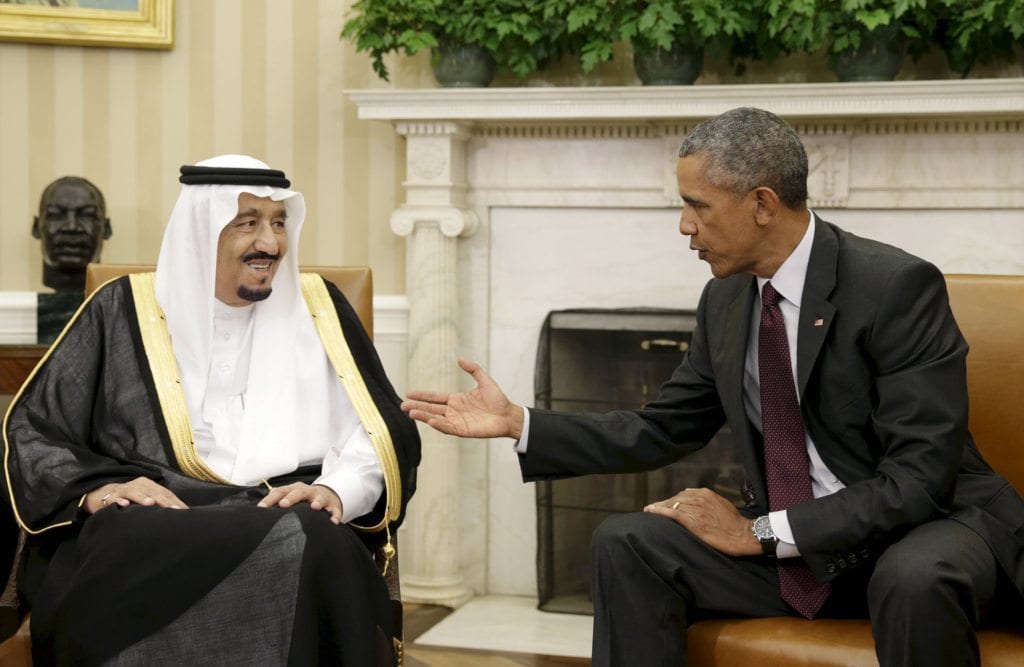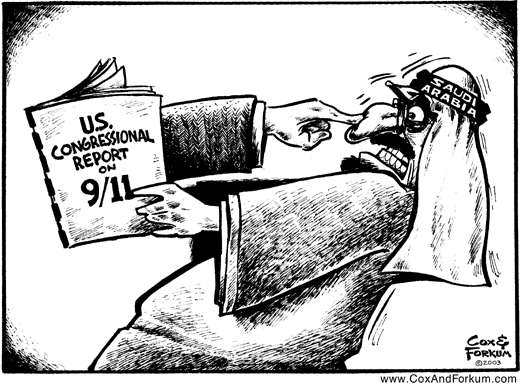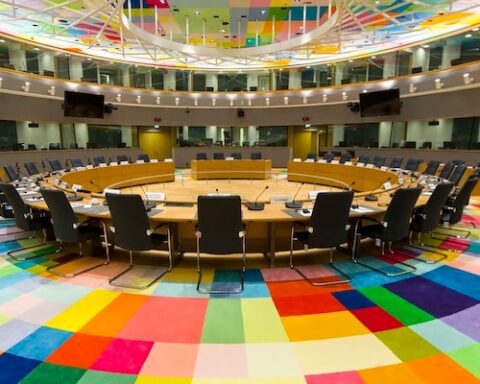Republicans handed President Obama the first veto override of his tenure allowing 9/11 victims to sue Saudi Arabia. Some now question whether it was the wise thing to do.
Last week the Senate voted 97-1 to override President Obama’s veto of what has become known as the 9/11 Victims Bill. The bill was inspired to help overcome obstacles that victims and families of the attacks on September 11, 2001 encountered while bringing lawsuits against the Kingdom of Saudi Arabia. Saudi Arabia is the home country to 15 of the 19 hijackers of the 9/11 attacks. The House of Representatives voted 348-77 for the override. Senate Democratic Leader Harry Reid (D-NV) cast the lone vote against the bill in the Senate.
The bill, formally titled the Justice Against Sponsors of Terrorism Act (JASTA), was sponsored by Sen. John Cornyn (R-TX). JASTA gives U.S. citizens the right to bring a claim against any foreign country in a U.S. court for a terrorist act committed in the United States.
“This legislation would provide a legal avenue for the families of the victims of the 9/11 attacks to seek justice in a court of law for the terrorist attacks that took the lives of their loved ones. And it would deter foreign entities from sponsoring terrorism in the future,” Sen. John Cornyn (R-TX) and Sen. Chuck Schumer (D-NY) stated in a joint press statement.
The incentives for passing the bill are clear; no member of Congress wants to be seen as voting against the families of 9/11 victims. Yet within days of overriding the veto, Members of Congress appeared to question the wisdom of their actions. Senate Majority Leader Mitch McConnell (R-KY) stated, “Everybody was aware of who the potential beneficiaries were, but nobody really focused on the potential downsides in terms of our international relationships.”
House Speaker Paul D. Ryan (R-WI) echoed those statements. “I’d like to think that there’s a way we could fix [it] so that our service members do not have legal problems overseas, while still protecting the rights of the 9/11 victims,” said Ryan. Ryan and McConnell made these comments after overriding the President’s veto.
Kristen Breitweiser, whose husband was killed in the attacks at the World Trade Center, stated: “We believe that 15 years is long enough and it would honor our loved ones if they would pass JASTA and allow us to proceed with our path to justice and holding the Saudis accountable for their alleged role.”

Critics of the veto override point to how U.S. courts may rule on cases and the reciprocal response from other nations.
David Eggert, former litigator at Arnold & Porter LLC and current professor at Washington and Lee University School of Law, in an interview describes JASTA as “[A]t best a sledgehammer used to repair a possibly leaky boat.” “The United States Code (28 U.S.C. § 1605[a]) already contains a provision that stripped foreign states of sovereign immunity if they provide material support for acts of terrorism,” said Eggert. “But that provision applied only if the nation in question had been ‘designated as a state sponsor of terrorism.’ Saudi Arabia has never been so designated.” Currently, the only countries designated are Iran, Syria, and Sudan.
Eggert explained that 28 U.S.C. § 1605(a)(The Foreign Sovereign Immunities Act) contains an exception for a tort that takes place in the United States. One federal district court has held that because the entirety of the alleged actions that went into the 9/11 attacks did not take place inside the U.S., the claim is exempt for subject matter jurisdiction. According to Eggert, the decision is controversial and is currently on appeal to the United States Court of Appeals for the Second Circuit. “Thus, to date, no successful action has been lodged in the U.S. courts against Saudi Arabia with respect to the 9/11 attacks. So the question arises – was this state of the law so bad that it justified passage of a new statute that essentially declares open season on foreign states by lawyers representing victims of terrorism here in the U.S.?”
David Eggert described the two major dangers of the bill: “First, the law threatens to strain relations with other countries. Second, this open-ended loosening of sovereign immunity necessarily risks encouraging other nations to reciprocate by narrowing the scope of sovereign immunity enjoyed by the U.S. overseas. And for what? It might not even be necessary.”
JASTA may also not be necessary because the Court of Appeals may reverse the decision by the district court, enabling Saudi Arabia to be subject to a suit under the “U.S.-tort” exemption.
“JASTA sweeps more broadly than 9/11 or Saudi Arabia, and its far-reaching implications would threaten to undermine important principles that protect the United States, including our U.S. Armed Forces and other officials overseas, without making us any safer,” President Obama wrote a letter to Sen. Reid that was made public Wednesday.
Eggert addressed what critics to his position may state: “Speculation abounds that redacted portions of the 9/11 Report might contain damning information implicating Saudi Arabia, but it seems odd to enact a statute based merely on speculation. Wouldn’t it be better – if appropriate – to enact legislation [that unredacted] the relevant portions of the report or otherwise making it available to the families of the 9/11 victims?”
Saudi Arabia has threatened to sell off hundreds of billions of dollars worth of American assets held by the Kingdom if Congress passed JASTA, asserting that JASTA erodes foreign immunity, which has governed international relations for years. Saudi Arabia currently holds $96.5 billion of Treasury securities, which makes it the 15th highest holder of Treasury debt.

In a September 23rd press release, President Obama warned how JASTA upsets sovereign immunity and threatens U.S. national interests: “Removing sovereign immunity in U.S. courts from foreign governments that are not designated as state sponsors of terrorism, based solely on allegations that such foreign governments’ actions abroad had a connection to terrorism-related injuries on U.S. soil, threatens to undermine these longstanding principles that protect the United States, our forces, and our personnel.”
On September 30th the law went into effect when the first lawsuit, DeSimone v. Kingdom of Saudi Arabia, was filed (Complaint). Lead plaintiff, Stephanie Ross DeSimone was two months pregnant when her husband, United States Navy Commander Patrick Dunn, was killed while working at the Pentagon during the September 11 attacks.
J. David Thompson, Lima Charlie News
J David Thompson (US Army) is a Juris Doctor candidate at Washington & Lee University School of Law focusing on International Human Rights Law. He is a Veterans in Global Leadership Fellow, and brings experience on human rights, international relations, strengthening civil society, refugee issues, interagency collaboration, and countering violent extremism. Prior to Washington & Lee, he served in the US Army as a Military Police officer and Special Operations Civil Affairs with multiple deployments to Afghanistan and one to Jordan—receiving a Bronze Star amongst other decorations. In Jordan, David worked at the US Embassy in countering violent extremism, strengthening civil society, and refugee response with other United States Government organizations, the United Nations, and various non-governmental organizations.
Follow David on Twitter | @JDThompsonLC
Lima Charlie provides global news, insight & analysis by military veterans and service members Worldwide.
For up-to-date news, please follow us on twitter at @LimaCharlieNews
[Main Image: SAUL LOEB/AFP]











